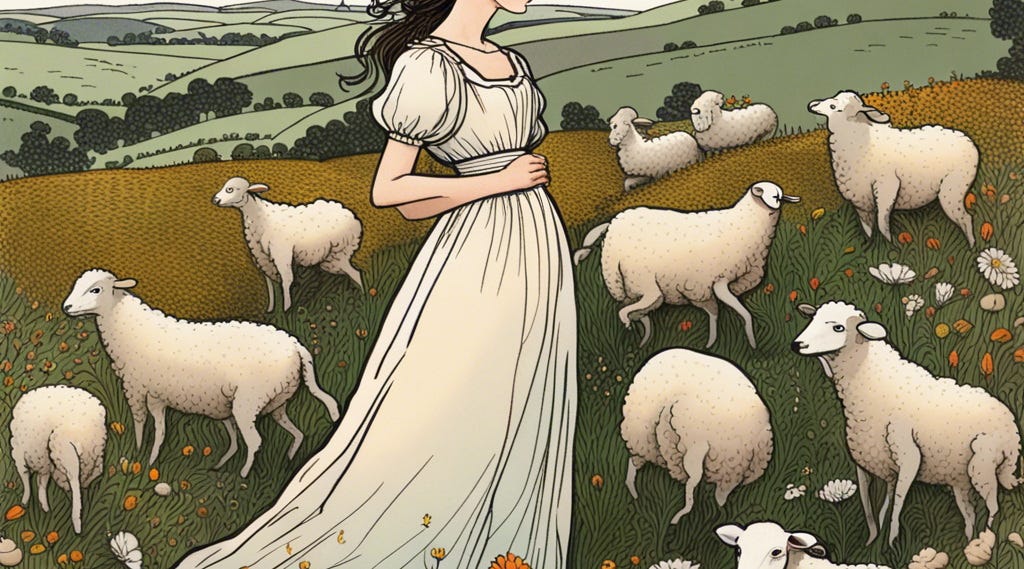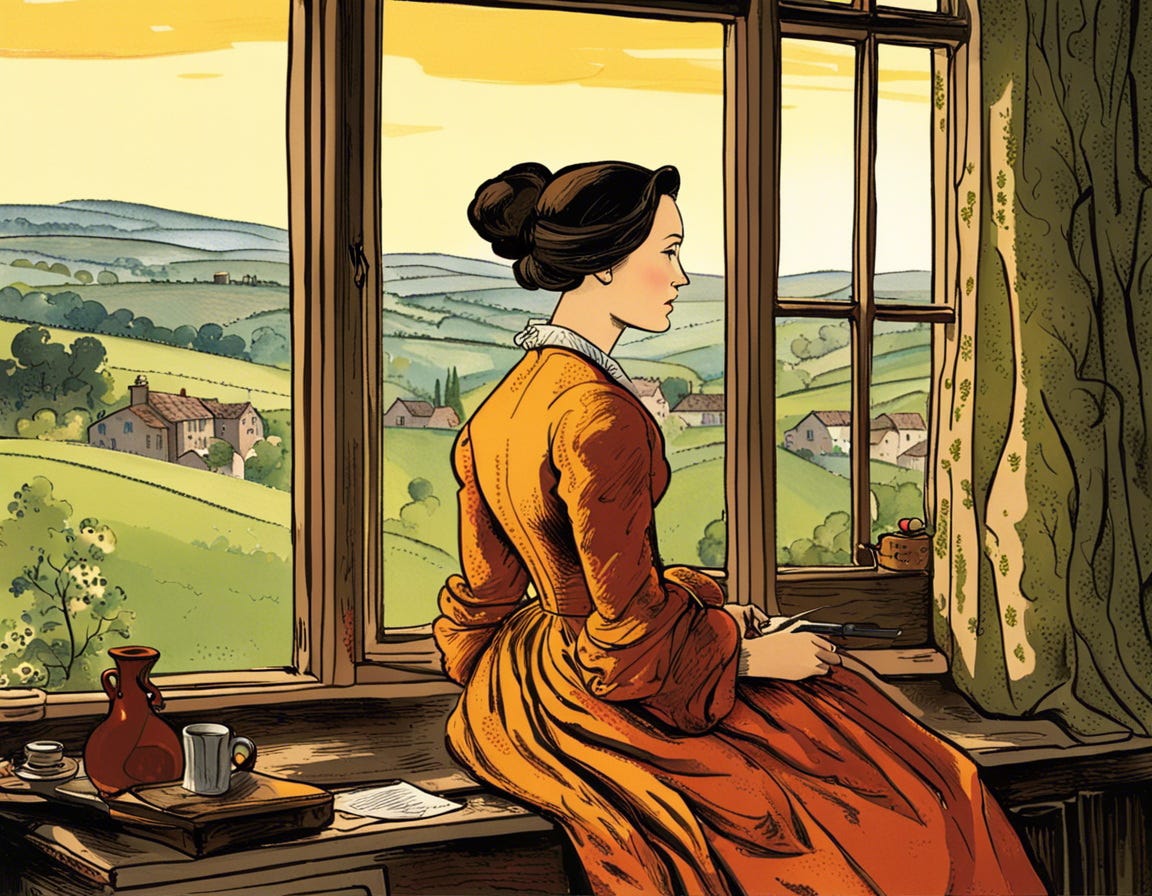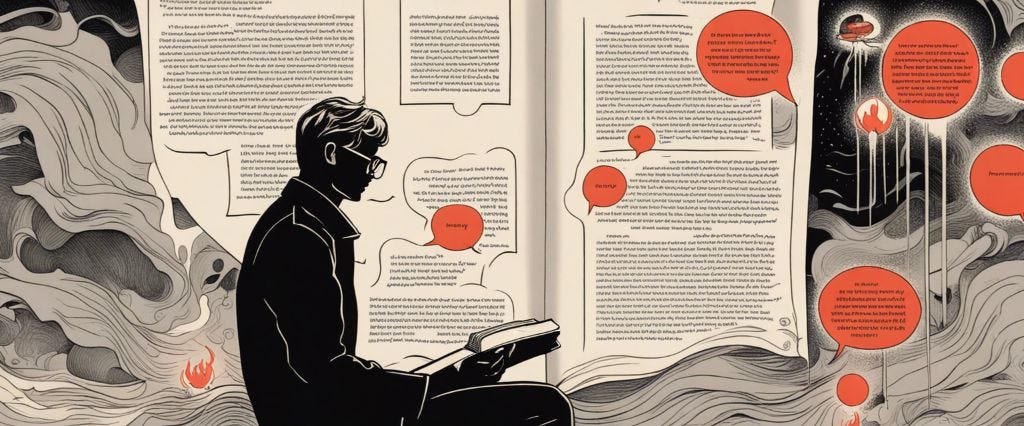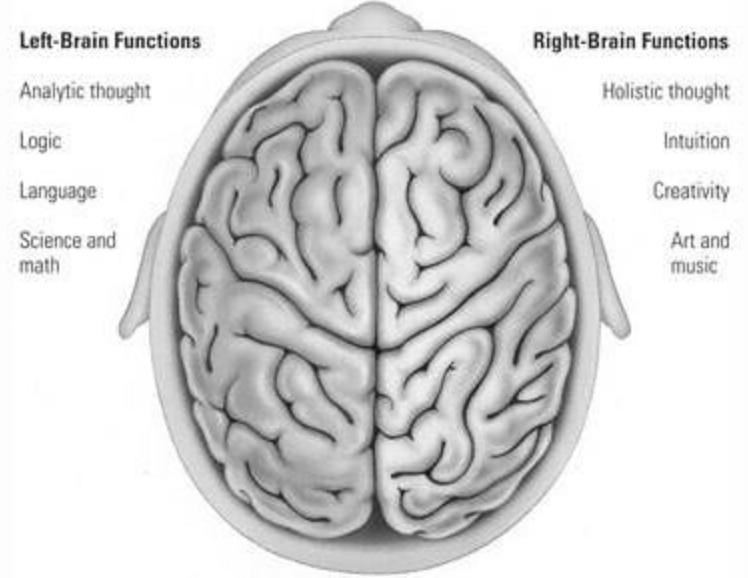Introduction
Don Quixote, written by Miguel de Cervantes in the 17th century, is a literary masterpiece that has captivated countless readers throughout the ages. This iconic novel tells the story of an idealistic and eccentric knight-errant who sets out on a quest to revive chivalry and fight for justice. As we embark on this literary journey, we are bound to encounter a plethora of insightful and thought-provoking quotes that have left an indelible mark on literature and continue to resonate with readers today.
In this article, we will delve into the world of Don Quixote and highlight some of its most remarkable quotes. These words of wisdom, dripping with wit, satire, and profound introspection, have the power to inspire, entertain, and provoke contemplation. Whether you are a seasoned fan of Don Quixote or new to the enchanting realms of Spanish literature, this compilation aims to uncover the gems within the novel’s pages and shed light on their enduring relevance in our modern world.
Who is Don Quixote?
Don Quixote is a middle-aged nobleman obsessed with chivalry, knights, and medieval romances. Driven mad by reading countless books on the subject, he sets out on a quest to revive chivalry and become a knight-errant himself. He renames himself “Don Quixote” and appoints a simple farmer named Sancho Panza as his loyal squire.
Despite not possessing any extraordinary physical abilities or wealth, Don Quixote is fueled by his vivid imagination and an unwavering determination to right wrongs and protect the helpless. He firmly believes that he is destined to bring justice and honor back to the world.
In his delusions, Don Quixote perceives windmills as giants, country inns as castles, and ordinary men as knights and princesses. Although his actions often lead to comic situations and misunderstandings, Don Quixote’s character embodies idealism, courage, and a refusal to conform to societal norms.
Throughout his adventures, Don Quixote encounters various characters who challenge his romantic ideals, exposing the discrepancy between his fantasies and reality. However, despite these setbacks, he remains resolute in his quest, leaving behind a legacy of poignant satire and profound reflections on human nature.
Why We Love Don Quixote?
Idealism and Romanticism: Don Quixote embodies the spirit of idealism and romanticism. He passionately pursues his dreams of chivalry, knighthood, and honor, despite the world’s skepticism and mockery. His unwavering dedication to his ideals resonates with readers, inspiring them to embrace their own dreams and pursue them with zeal.
Endearing Quirks and Eccentricities: Don Quixote’s idiosyncrasies, such as tilting at windmills or mistaking innkeepers for castle lords, make him a lovable and relatable character. His imaginative interpretation of reality adds humor and charm to the story, making readers root for him even in his most absurd moments.
Complexity and Depth: While Don Quixote is often portrayed as a comical figure, he also possesses depth and complexity. Miguel de Cervantes skillfully weaves together themes of identity, sanity, and disillusionment. Don Quixote’s inner struggles and self-reflection make him a multidimensional character that captivates readers’ emotions and sympathy.
Humanism and Empathy: Don Quixote’s encounters and interactions with various characters throughout the novel highlight the importance of empathy and understanding. Despite his delusions, he treats others with respect and kindness, demonstrating a genuine concern for their well-being. This aspect of his character resonates with readers, reminding them of the value of compassion and humanity.
Timeless Relevance: Don Quixote’s universal appeal lies in its relevance across different eras. The character’s pursuit of an ideal world amid a cynical society strikes a chord with contemporary readers. Don Quixote’s refusal to conform to societal norms and his courage to challenge conventional thinking resonate with individuals seeking authenticity and meaning in their lives.
30 Must-Read Quotes from Don Quixote
1. “Finally, from so little sleeping and so much reading, his brain dried up and he went completely out of his mind.”
This quote highlights how excessive reading can lead to delusion and detachment from reality.
2. “For me alone was Don Quixote born, and I for him; he knew how to act, and I to write; alone we two are enough to make the whole world relish the truth that our histories contain.”
Don Quixote’s creator, Miguel de Cervantes, emphasizes the unique bond between himself as the author and Don Quixote as the character, suggesting they jointly convey a profound truth.
3. “Perhaps all the good fortune of my life came to me because I am a lover of books.”
Don Quixote acknowledges the impact that literature has had on shaping his perspective and experiences.
4. “The truth may be stretched thin, but it never breaks, and it always surfaces above lies.”
This quote reflects Cervantes’ belief in the enduring power of truth, even if it is temporarily obscured by falsehoods.
5. “Sleeping like a log.”
An oft-quoted expression used by Cervantes to describe Sancho Panza’s deep slumber, implying his obliviousness to the world around him.
6. “Rome wasn’t built in a day.”
This popular phrase, often attributed to the novel, conveys the idea that great achievements require time and patience.
7. “Too much sanity may be madness. And maddest of all, to see life as it is and not as it should be!”
Don Quixote questions the boundaries between sanity and madness, suggesting that an idealistic view of life might be considered madness by some.
8. “Whether the pitcher hits the stone or the stone hits the pitcher, it’s bad for the pitcher.”
This quote metaphorically projects the idea that engaging in conflicts can have detrimental consequences for all parties involved.
9. “I know who I am, and I know who I may be if I choose.”
Don Quixote expresses his belief in the transformative power of personal choice, highlighting the potential for self-improvement and change.
10. “In this country of ours, where such a great variety of languages are spoken, the lad who doesn’t know how to curse is regarded as a dullard.”
This quote humorously portrays the prevalence of cursing in Spanish society during Cervantes’ time.
11. “The proof of the pudding is in the eating.”
A common saying used by Sancho Panza, implying that actions speak louder than words and true value is determined through experience.
12. “I say that everyone must look into his own conscience and not into that of another.”
Don Quixote advocates for introspection and personal accountability rather than relying on external judgment.
13. “Love is the most subtle form of madness; it enters subtly and occupies your soul without asking for permission.”
Cervantes captures the intense and irrational nature of love, illustrating its ability to consume individuals.
14. “To surrender dreams — this may be madness.”
This quote reflects the importance of pursuing one’s dreams, suggesting that giving up on them completely could be seen as madness.
15. “He who sings scares away his woes.”
Music is depicted as a source of solace and distraction from life’s troubles, offering temporary respite from hardships.
16. “What man can live without enjoying the sweet fruit of love? It costs nothing and is within the reach of all.”
Don Quixote recognizes the universal desire for love and argues that it should be accessible to everyone.
17. “Hunger is the best sauce in the world.”
Sancho Panza’s humorous remark highlights the tendency to appreciate food more when one is truly hungry.
18. “It is one thing to write as a poet, another to write as a historian: the poet can recount or sing about what has happened, and the historian must write about the truth, even if he should have to cut away and separate the fruit of invention from the branches of truth.”
Cervantes emphasizes the distinction between poetry and historical writing, asserting the importance of factual accuracy in historical accounts.
19. “The road is always better than the inn.”
This quote reflects the idea that the journey itself holds more value than reaching the destination, suggesting that experiences along the way are often more significant.
20. “I am so convinced of the advantage that comes from telling the truth that I will go on declaring it, though falsehood may offer me greater rewards.”
Don Quixote stresses his unwavering commitment to truth, even in the face of potential personal gain through deceit.
21. “I am bound to serve my conscience before any obligation imposed by man.”
Don Quixote’s commitment to following his own moral compass, even in the face of societal expectations, is evident in this quote. It underscores the importance of individual autonomy and personal ethics.
22. “The history of the world is none other than the progress of the consciousness of freedom.”
Don Quixote’s belief in the power of individual freedom extends beyond his personal experiences. This quote suggests that the advancement of society and humanity is intricately tied to the collective realization and pursuit of freedom.
23. “The worst madness a man can suffer in this life is to let himself die just like that, without anybody killing him or any other hands ending his life except those of melancholy.”
This quote provides insight into the character’s mindset and philosophy. Don Quixote acknowledges that allowing oneself to succumb to sadness and despair is a form of self-imposed death, emphasizing the importance of finding purpose and meaning.
24. “Take my advice and live for a long, long time. Because the maddest thing a man can do in this life is to let himself die.”
Don Quixote’s encouragement to live fully aligns with his larger-than-life personality. This quote embodies the spirit of adventure and passion that drives him, urging readers to embrace life rather than resigning themselves to a passive existence.
25. “All sorrows are less with bread.”
This quote expresses the idea that having basic necessities and sustenance can alleviate emotional pain and difficulties, emphasizing the importance of simple comforts.
26. “Every tooth in a man’s head is more valuable than a diamond.”
This quote emphasizes the significance of health and well-being over material possessions, highlighting the intrinsic value of everyday necessities.
27. “Wit without discretion is like a sword in the hands of a fool.”
This quote warns against using intelligence or cleverness without considering the consequences, suggesting that wisdom should accompany intellect.
28. “Too much liberty leads to faction, too much constraint leads to rebellion.”
This quote explores the delicate balance between freedom and control, suggesting that extremes in either direction can lead to societal unrest.
29. “It is one thing to see the Devil, and another to be possessed by him.”
This quote differentiates between recognizing evil and succumbing to its influence, illustrating the concept of personal agency and the power of choice.
30. “In order to attain the impossible, one must attempt the absurd.”
This quote encourages taking risks and pursuing seemingly unattainable goals, illustrating the idea that great achievements often require thinking outside the box.
Books to Satiate Your Thirst for Don Quixote-like Sayings
1. “The Picture of Dorian Gray” by Oscar Wilde — A philosophical exploration of beauty, art, and morality, this book is filled with clever and provocative quotes.
2. “Brave New World” by Aldous Huxley — Another dystopian classic, it offers quotes that delve into the dangers of societal conformity and the loss of individuality.
3. “The Brothers Karamazov” by Fyodor Dostoevsky — This Russian masterpiece delves into moral and philosophical questions, providing profound quotes about faith, guilt, and redemption.









